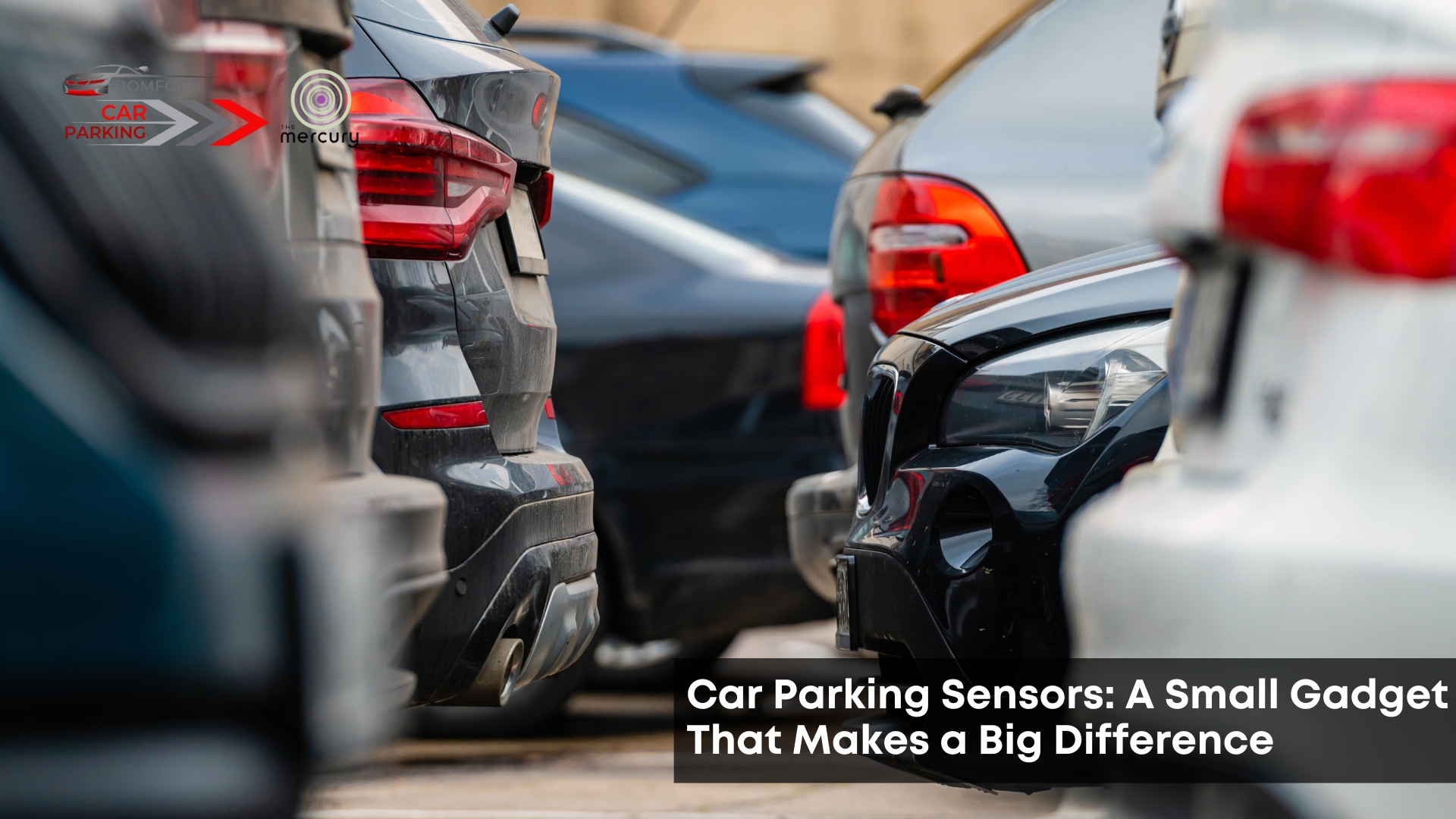Car Parking Sensors: A Small Gadget That Makes a Big Difference
Car Parking Romford knows that small gadgets can bring big peace of mind, and car parking sensors are the perfect example. These compact tools quietly guide drivers away from scrapes, saving time, money, and stress. From ultrasonic alerts to advanced radar systems, they help in all kinds of tricky parking spots. Whether you are at the shops, at home, or parking at night, sensors make things easier. It is helpful first to understand how these clever devices work in everyday use.
What Are Car Parking Sensors and How Do They Work?
Car parking sensors use ultrasonic or electromagnetic signals to detect nearby objects and alert the driver. These alerts can be audible beeps or visual signals on a dashboard display. Most systems are designed to fit into the front or rear bumpers and activate automatically when the vehicle is reversing or slowing down. The car park sensor system acts like an extra set of eyes, especially useful in low-visibility areas. Once you understand how they function, it is worthwhile to examine their actual effectiveness.
Can Parking Sensors Prevent Bumps and Scrapes?
Yes, car parking sensors are effective at preventing small crashes, such as bumps and scrapes. They give a warning before your car touches another object, which helps protect your bumper, paintwork, and other vehicles. This is especially useful in crowded urban areas or narrow driveways. The car’s rear parking sensor system works best when reversing into tight spots or unfamiliar areas. Now, let’s explore whether you need sensors at both the front and the back of your vehicle.
Are Front and Rear Sensors Both Necessary?
Yes, front and rear parking sensors provide full protection and assist with parking in both directions. Rear sensors are essential for reversing, while front sensors help you ease into tight bays or approach low walls. Cars fitted with car parking sensors on both the front and rear tend to be involved in fewer accidents than those with only one end covered. That full coverage matters most in tight or busy car parks, which brings us to the next point.
How Accurate Are Sensors in Tight or Busy Car Parks?
Car parking sensors are generally accurate in tight or crowded places but may struggle with very thin poles or uneven surfaces. A good car park sensor system alerts you just in time to prevent contact with objects. In multi-storey or underground car parks, sensors are especially helpful for gauging narrow spots. Although reliable, it is helpful to know how weather conditions might affect performance, especially in challenging situations.
Do Car Parking Sensors Work in Rain or Low Light?
Yes, most car parking sensor systems work well in poor lighting or wet conditions; however, heavy rain may slightly reduce their sensitivity. The parking sensor car setup is designed to perform across a range of weather types common in the UK. Keeping the sensors clean is crucial to prevent false alerts caused by water or dirt. If you’re considering installing a system yourself, it’s essential to understand how straightforward the process is.
Can You Install Parking Sensors Yourself at Home?
Yes, you can install many parking sensor kits at home if you’re confident with basic car electrics. Some kits come with clear instructions and wireless parts that make fitting easier. A car parking sensor with a camera or a full car parking device might need more skill and time. Even so, many drivers find home fitting to be a cost-effective option. Once you’re set up, you might wonder about adding even more helpful features.
Are There Parking Sensor Kits with Cameras and Alerts?
Yes, many modern sensor kits now include rear-view cameras, visual dashboards, and sound alerts. These car parking sensor systems provide clearer guidance, especially in dark or tight spaces. They often combine a car parking alarm system with a live video feed to help spot small objects. These features are great for anyone who parks in unfamiliar or complex areas. Still, it’s worth asking whether the premium features are worth the extra money.
Is It Worth Paying More for Premium Sensor Features?
Yes, higher-end parking sensor kits often give better accuracy, more alert options, and stronger durability. A premium system may include a car parking radar system with advanced sensors and extra-long-range coverage. Investing in better tech can save more in the long run by avoiding costly accidents. If you frequently park in busy areas or tight spots, it can also be helpful to book parking space in advance. This is especially useful for new drivers, which is something many forget to consider.
Should All New Drivers Consider Using Parking Sensors?
Yes, parking sensors are ideal for new drivers who are still learning to judge distances. A parking sensor for car learners can help prevent early mistakes that lead to damage or lost confidence. Many parents install a car parking sensor system for their children’s safety. Building trust early makes parking less stressful and encourages good driving habits. Along with these tools, even something as routine as a car wash can reinforce care and responsibility for a vehicle. To round it off, let’s look at the bigger picture of why these gadgets matter.
How Car Parking Sensors Boost Safety, Confidence, and Convenience
Car parking sensors are more than just tech gadgets; they make daily driving safer, smoother, and more enjoyable. Whether it’s a basic car reverse parking sensor or a full system with alerts and a camera, the added control is valuable. You spend less time worrying and more time focusing on the road. As specialists in car parking Romford, we recommend fitting a car parking sensor system as a smart move for any driver. It’s a small upgrade that truly makes a big difference.


Leave a Reply